LATEST INSIGHTS
Your Present Location: LATEST INSIGHTS-
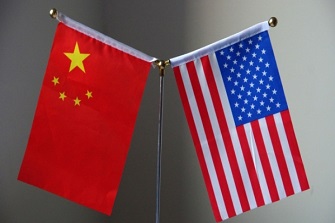
China, US must seek new balance of trade
China and the United States need to establish a new balance of trade, finance and technology cooperation, while avoiding a full-blown confrontation amid intensified tensions, experts said. Their comments came as Washington threatened to impose an additional 10 percent tariff on $300 billion worth of Chinese goods starting Sept 1, and labeled China "a currency manipulator".
2019-08-14 -

More developers voice support for HKSAR govt
On Tuesday, 41 developers belonging to the Real Estate Developers Association (REDA) of Hong Kong issued a joint statement voicing their opposition toward increasingly violent protests and vandalism in the city, saying these incidents are seriously encroaching on Hong Kong's core value of the rule of law and increasing the economic downward pressure on the city.
2019-08-14 -
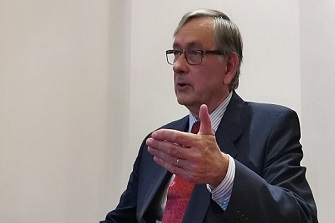
Danilo Türk: Tariffs are a blunt and old fashioned way to regulate trade
The thundering trade war between China and the U.S. shows no sign of cooling down. The latest round of escalation came when the United States threatened to slap 10 percent tariff on an additional 300 billion U.S. dollars of Chinese goods and China responded by suspending new imports of American agricultural goods. China and the U.S. are still far from reaching a consensus, but the consensus of the world at large is: the trade war is wreaking havoc the global economy.
2019-08-14 -

Bian Yongzu: The Shorter the List, the Greater the Opportunity
Three administrative documents released by the Chinese government, Special Administrative Measures on Access to Foreign Investment (2019 edition), Free Trade Zone Special Administrative Measures on Access to Foreign Investment (2019 edition) and Catalogue of Industries for Guiding Foreign Investment , came into effect on July 30, 2019. The latest revision includes new opening-up measures in services, manufacturing, mining and agriculture, allowing full foreign ownership in more sectors, with no additional limits added. Three changes highlight the new negative list.
2019-08-14 -
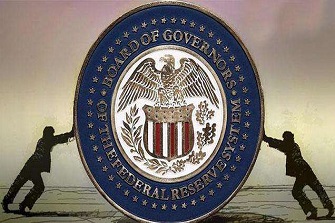
Zhao Minghao:Washington is choking off U.S.-China economic and trade negotiations
On August 9, the International Monetary Fund (IMF) released a report saying that the renminbi (RMB) is not being significantly undervalued or overvalued, and a more flexible exchange rate will provide greater room to solve China's domestic problems. This statement is bound to disappoint the Trump administration. The U.S. Treasury Department, which labeled China as a "currency manipulator," had originally hoped to seek backing from the IMF.
2019-08-13 -
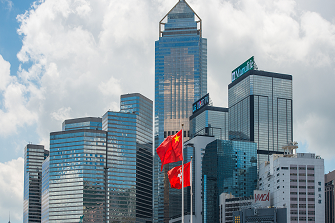
William Jones: Who's 'mucking about' in Hong Kong, and why?
The world has been taken by surprise by the violence and the duration of the ongoing turbulence in Hong Kong. While demonstrations in Hong Kong do occur on occasions, the violent eruptions coming out of this demonstration was unexpected. However, it is probably not "spontaneous."
2019-08-13 -

Liu Zongyi: Kashmir issue proves India unqualified for UN Security Council seat
Through a presidential order, the Indian government on August 5 scrapped Article 370 of Indian Constitution, which granted special status to the India-controlled Kashmir. The move means the region, an internationally recognized disputed territory between India and Pakistan, was forcibly transformed into alleged Indian territory by New Delhi. This is unacceptable to Pakistan and has triggered a serious confrontation between the two countries.
2019-08-13 -

Is cash on the way out in China?
Mobile payments have taken China by storm. Whether it's shopping, buying a meal in a restaurant, taking a taxi, purchasing cinema tickets or paying utility bills, almost every financial transaction can be managed on a mobile phone by scanning a QR code. Over the past five years, as cash and bank cards have been abandoned in favor of hundreds of millions of virtual wallets, China has emerged as the world leader in mobile payment, in terms of users and value.
2019-08-12 -

John Ross: Why the rise of China is a long march
For numerous reasons the book is essential reading for anyone studying China's rise. But its importance lies above all in its "Chinese characteristics" - in showing how the framework of thought created by China's age of struggle and rising era is the most accurate guide to current international events. It outlines the basis on which the success of the Chongyang Institute was created. In addition to its importance for China itself if Western leaders read it they will make far fewer mistakes in understanding China.
2019-08-12 -
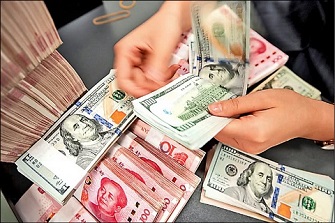
Trade war could morph into currency war as US is likely to escalate conflict
Escalating financial friction between China and the US as a side effect of the trade war is becoming a hot topic among Chinese economists, with some of them cautioning that the trade row might worsen into a finance war between the two countries.
2019-08-12 -

US hate crimes, xenophobic rhetoric daunt Chinese
Chinese internet users expressed safety concerns for US society after two mass shootings claimed dozens of lives. Some users said the US had already lost its appeal through its hostile polices against China, with the shootings just adding fuel to the fire. US society is grappling with two mass shootings in two cities over the weekend, which left 20 people dead in El Paso and nine others killed in Dayton.
2019-08-09 -
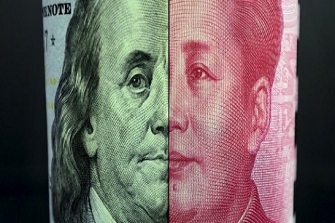
John Ross: China tests its nuclear financial weapon – US markets understood, has Trump?
On Monday 5 August China tested an economic nuclear weapon – it allowed the RMB’s exchange rate to fall. In addition to the drop itself it took it below the psychologically important 7.0 level. Financial markets understood immediately the impact of this drop in the RMB’s exchange rate – the US S&P500 share index fell by 3% in a single day, the worst daily decline of 2019. This sharp fall on US share markets repeated the experience following the RMB’s devaluation in 2015.
2019-08-09 -
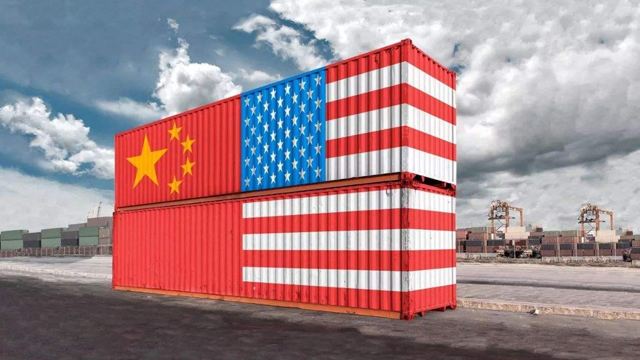
US may fall further in ranks of China's trading partners
China's overall foreign trade expanded steadily in the first seven months of the year, with a 4.2 percent year-on-year increase, while trade with the US declined, customs data showed Thursday. Experts noted that the US, which was formerly the No.2 trading partner of China, might fall into fourth spot soon if trade tensions worsen.
2019-08-09 -
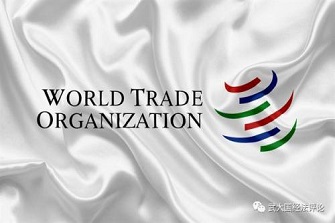
He Weiwen: Why the U.S.’s 90 day ultimatum to the WTO will get it nowhere
U.S. President Donald Trump issued a White House Memorandum (hereafter referred as the Memo) on July 26, on reforming the WTO’s developing economy status. The Memo set a 90-day ultimatum to the WTO to change the developing economy status of several WTO members, including China. If the WTO fails to meet the deadline, the U.S. says it will act unilaterally. The Memo, harsh in wording, was in fact neglected in the WTO and refuted immediately by China.
2019-08-09 -

Ding Gang: More than durian to China-Malaysia relations
My recent visit to Malaysia came eight years after my first trip to the country. As the car approached the Petronas Twin Towers, the landmark of Kuala Lumpur, I saw a billboard of China Construction Bank (CCB). On the second day, as I was wandering in the city, I noticed a signpost next to the office building of the operation department of CCB. It showed that the British Malaysian Chamber of Commerce is housed in the same building.
2019-08-08 -
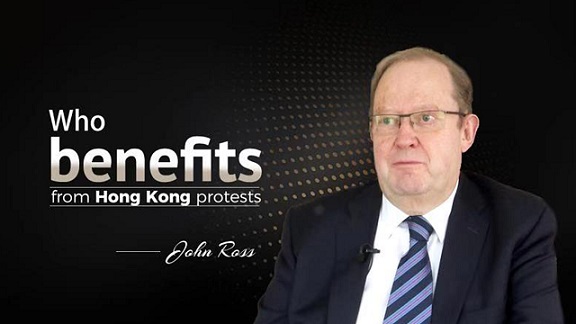
John Ross: Who benefits from Hong Kong protests?
Hong Kong is now in its ninth consecutive week of mass protests. The violent clashes between police and protesters have grabbed global attention.
2019-08-08 -

Hanfu: The controversies behind the new trend
Hanfu, the traditional clothing for Han Chinese, an ethnic group that makes up more than 90 percent of the Chinese population, has seen a resurgence in recent years. Mainly favored by young people, the hanfu isn't only popular, it's gained widespread acceptance as daily attire.The hanfu boom has seen a proliferation in styles. To cater to the diverse tastes of youth, sellers are putting a fancy spin on this ancient attire.
2019-08-08 -
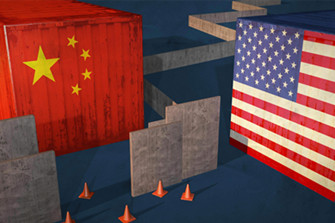
China can withstand a long-lasting trade war
The trade war between China and the United States could go on for another decade and hurt Americans more, experts warned on Monday during a seminar at the Renmin University of China, where 10 Chinese academics gave their analyses on the ongoing dispute. They believe that with strategic thinking and staying power, China can use the situation as an opportunity to upgrade its economy.
2019-08-07 -

Liu Dian: Early Economic Explorations
Since the People’s Republic of China was founded in 1949, the Communist Party of China (CPC) has consistently performed strategic exploration of economics. From 1949 until the end of the first Five-Year Plan period (1953-1957), China completed a series of remarkable economic achievements.
2019-08-07 -

Liu Dian: Early Economic Explorations
Since the People’s Republic of China was founded in 1949, the Communist Party of China (CPC) has consistently performed strategic exploration of economics. From 1949 until the end of the first Five-Year Plan period (1953-1957), China completed a series of remarkable economic achievements.
2019-08-07
























































































 京公网安备 11010802037854号
京公网安备 11010802037854号





